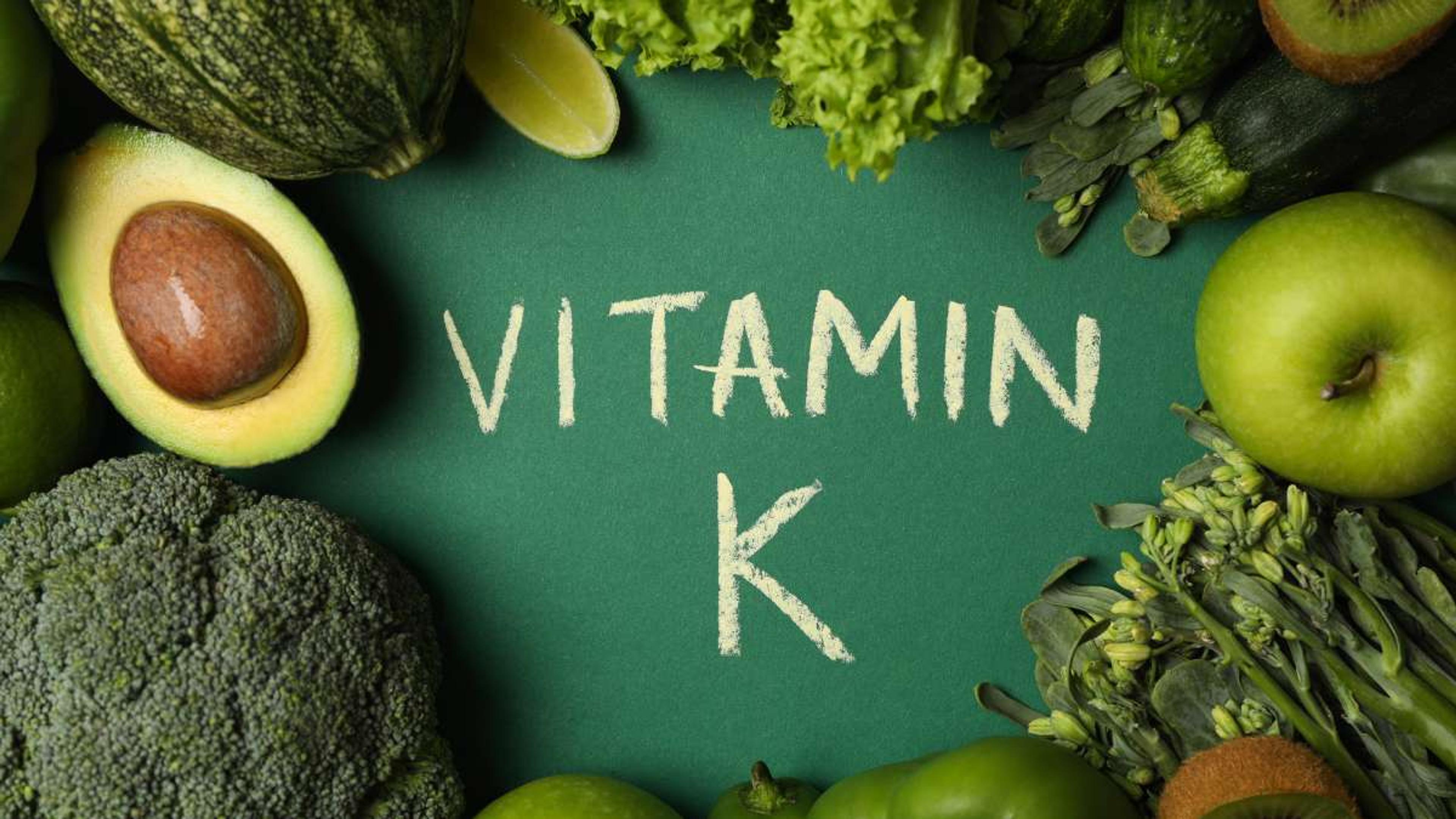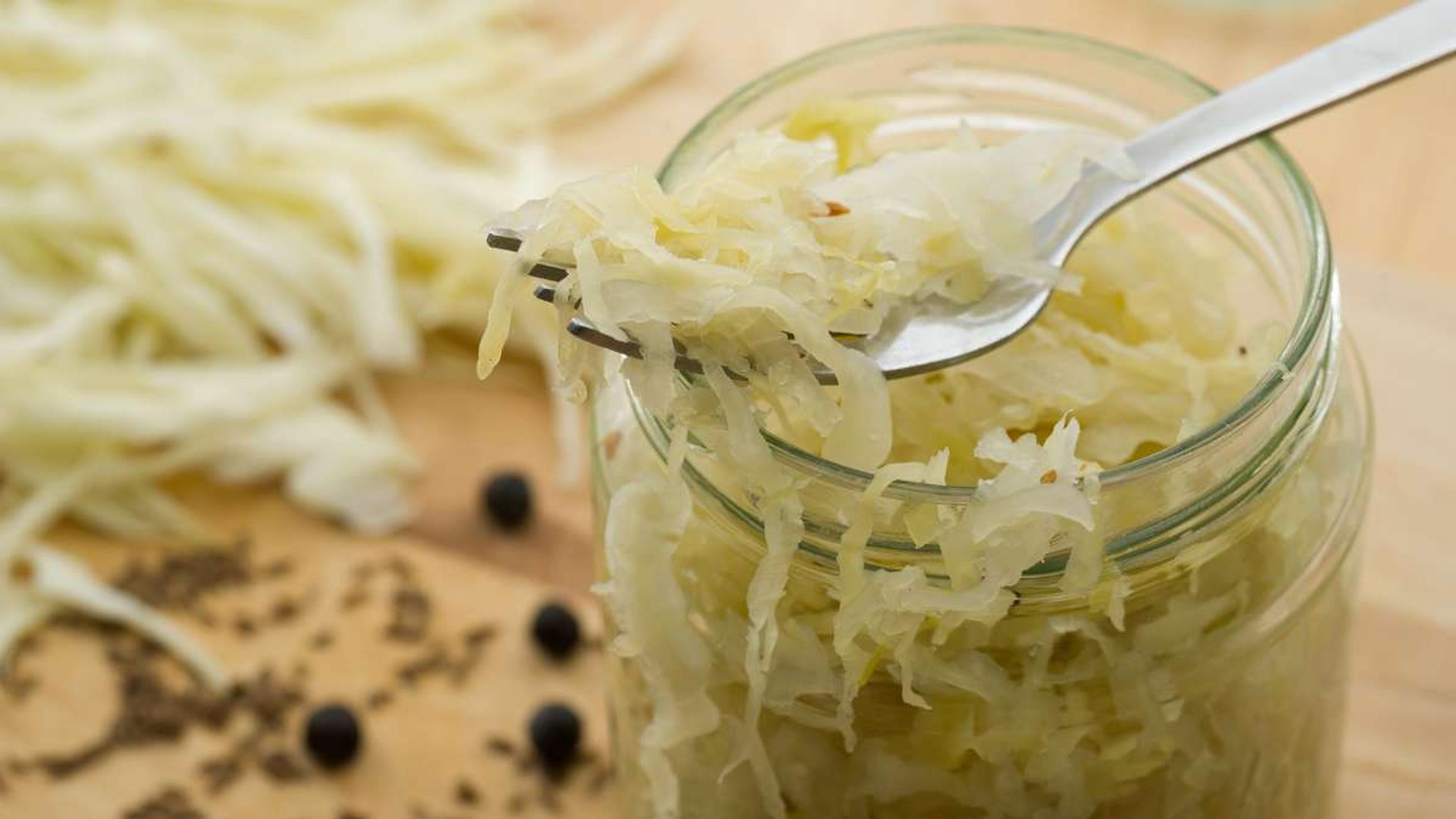Discover the Power of Vegan Vitamin K: Everything you need to know

- Key Takeaways
- Different Forms of Vitamin K
- Benefits of Vitamin K for Vegans
- Vegan Sources of Vitamin K1
- Vegan Sources of Vitamin K2
- Ensuring Adequate Vitamin K Intake on a Vegan Diet
- Conclusion
- FAQs
Navigating the world of vitamins can be tough, especially if you're a vegan. Did you know that vitamin K comes in two major forms, K1 and K2, each with unique benefits? This blog is your go-to guide to understanding these nutrients and their essential roles in our health.
So let's dive right into this exciting journey of unraveling the power of vegan-friendly vitamin K!
Key Takeaways
- Vitamin K comes in two major forms, K1 and K2. Vitamin K1 is crucial for blood clotting, while vitamin K2 promotes bone health and cardiovascular well-being.
- Vegans can benefit from incorporating vitamin K into their plant-based diets to support blood clotting, improve bone strength, prevent cancer, and enhance dental health.
- Dark leafy greens like kale and spinach are excellent vegan sources of vitamin K1, while natto and sauerkraut are rich in vitamin K2. Vegans may consider supplementation or consulting a healthcare professional to ensure adequate intake of vitamin K on a plant-based diet.
Different Forms of Vitamin K
Vitamin K exists in different forms, including K1 and K2, each playing important roles in the body's functions. Do not however that Vitamin K3 is not commonly found in nature and is not typically used in supplements or fortified foods. Vitamin K3, also known as menadione, is synthetically produced and has been linked to health risks. It is not commonly found in nature and unlike its natural counterparts, K1 and K2, vitamin K3 is not typically used in supplements or fortified foods due to its potential health risks. Research suggests that high doses of vitamin K3 may have toxic effects on the liver and can lead to oxidative damage in cells.
It's important for vegans to focus on obtaining adequate amounts of vitamin K through plant-based sources. While vitamin K1 is more readily available in plant foods, such as dark leafy greens like kale and spinach, vitamin K2 can be harder to obtain from a vegan diet. However, there are some plant-based sources of vitamin K2 that can be incorporated into a vegan lifestyle.
Understanding Vitamin K (K1 and K2) and their roles in the body
Vitamin K comes in two major forms, Vitamin K1 and Vitamin K2. Also known as phylloquinone, Vitamin K1 plays a crucial role in blood coagulation – a process that stops bleeding and initiates healing when you have an injury.
On the other hand, we have Vitamin K2 or menaquinone. This version of the vitamin is greatly responsible for promoting bone health and supporting cardiovascular well-being. It does this by helping to direct calcium into bones and teeth where it belongs instead of letting it settle into arteries or muscles.
Additionally, foods rich with fatty meats and dairy products are naturally packed with Vitamin K2 but can also be found in fermented plant-based foods such as natto or sauerkraut (fermented raw cabbage)!
Benefits of Vitamin K for Vegans
Vitamin K plays a crucial role in blood clotting, cardiovascular health, bone strength, cancer prevention, and dental health. Read on to learn how vegans can benefit from incorporating vitamin K into their plant-based diets.

Blood clotting and cardiovascular health
Vitamin K plays a critical role in promoting healthy blood clotting and maintaining cardiovascular health. Both forms of this nutrient, Vitamin K1 and K2, contribute to the proper functioning of our blood coagulation processes.
A deficiency could disrupt these mechanisms, leading to potential cardiovascular complications. Vegans can ensure adequate intake by consuming plant-based sources rich in Vitamin K or considering supplementation if necessary.
It is essential for every individual on a vegan diet to maintain an optimal level of vitamin K, thereby reducing susceptibility to heart disease and ensuring smooth functioning blood clotting processes.
Bone health and prevention of osteoporosis
Strengthening bones and inhibiting osteoporosis involves smart nutrition, including adequate intake of Vitamin K. This crucial vitamin aids in increasing bone mineral density and reducing fracture risks, particularly in older individuals.
Specific subtypes of Vitamin K, namely K1 and K2, maintain bone health by moderating key proteins that bind calcium to the skeletal structure. Increased levels of these vitamins have been linked consistently with improved bone health throughout various studies.
Low consumption leads to an increased likelihood of hip fractures and other related conditions, marking the importance of this nutrient in a balanced diet. Eating a diverse range of plant-based foods such as dark leafy greens can deliver ample amounts for vegans or those on similar diets to help sustain healthy bones over time.
Anticancer properties
Vitamin K, specifically K2, has been studied for its potential anticancer properties. Research has shown that these forms of vitamin K have the ability to inhibit cancer cell growth and promote cancer cell death.
Several studies have indicated their effectiveness as anti-cancer agents, making them a potential tool in the fight against cancer. These findings have sparked further interest in exploring the use of vitamin K as a complementary treatment option for various types of cancer.
Improved dental health
Most people are unaware of the impact that vitamin K2 can have on oral health. Low intake of this essential nutrient has been linked to poor dental health and an increased risk of oral issues.
Specifically, vitamin K2 is known to fortify the teeth, improving their strength and density. This is crucial for overall dental health as it helps prevent tooth decay and gum disease.
Furthermore, adequate levels of vitamin K2 can also enhance bone density, reducing the risk of fractures in the jawbone and other oral structures. Therefore, ensuring sufficient intake of vitamin K2 through diet or supplementation is vital for maintaining optimal dental health.
Vegan Sources of Vitamin K1
Dark leafy greens like kale, spinach, and broccoli are excellent vegan sources of Vitamin K1.
Dark leafy greens (Kale, Spinach, Broccoli)
Dark leafy greens like kale, spinach, collard, turnip greens, spring greens, spring onions and broccoli are excellent vegan sources of Vitamin K1. These nutrient-packed vegetables provide a range of health benefits due to their high Vitamin K content.
For example, one serving of cooked kale contains an impressive 443% of the daily value (DV) of Vitamin K. Similarly, other dark leafy greens like mustard greens, Swiss chard, turnip greens, and collard greens offer significant amounts of this essential vitamin.
By incorporating these plant-based foods into your diet regularly, you can ensure that you're getting enough Vitamin K1 for optimal health.
Other plant-based sources (Brussels Sprouts, Cabbage, Kiwi fruit)
Brussels sprouts, cabbage, and kiwi fruit are other excellent plant-based sources of vitamin K that vegans can include in their diet. Brussels sprouts provide a significant amount of vitamin K1, with about 129 mcg per half cup cooked.
Cabbage is also a rich source of vitamin K1 and contains approximately 109 mcg per 100 grams. Kiwi fruit, in addition to being packed with other nutrients, offers a decent amount of vitamin K1 as well.
Including these plant foods in your meals can help you meet your daily requirement of this essential nutrient while following a vegan diet.
Fruits (Avocado, Blueberries, Grapes & Kiwi Fruit)
Avocados are not only delicious but also a great source of vitamin K1. In fact, one medium-sized avocado contains about 40% of the recommended daily intake of this essential nutrient.
Adding avocado to your salads, smoothies, or even enjoying it on its own can provide you with a healthy dose of vitamin K1 while following a vegan lifestyle. Other fruits that are rich in Vitamin K1 are blueberries, grapes, and kiwi fruit. Blueberries contain about 19% of the daily recommended intake of vitamin K1 per cup, while grapes offer around 14%. Kiwi fruit provides approximately 41% of the recommended daily amount in just one medium-sized fruit.
By incorporating these fruits into your diet regularly, not only will you be enjoying their delicious flavors, but you'll also be ensuring that you're getting an ample supply of vitamin K1 as a vegans. Don't forget to top your veggie & fruit intakes with nuts and seeds that can contribute to your vitamin K1 intake; pistachios & chia seeds, in particular are packed with Vitamin K1.
Vegan Sources of Vitamin K2
Natto, sauerkraut, kombucha, and tempeh are all excellent vegan sources of Vitamin K2.
Natto

Natto is a vegan source of vitamin K2. It is the only significant plant-based source of this vitamin, containing far more than any other food that has been tested. Just one tablespoon of Natto provides about twice the recommended intake of vitamin K2.
This makes it an excellent choice for vegans and vegetarians looking to increase their vitamin K2 levels.
Sauerkraut

Sauerkraut, a fermented cabbage dish, is not only a delicious addition to meals but also a rich source of probiotics. It contains 2.75 micrograms of vitamin K2 per half-cup serving, making it an excellent choice for vegans looking to ensure an adequate intake of this essential nutrient.
Including sauerkraut in a plant-based diet can provide numerous health benefits and contribute to overall well-being. Additionally, studies have revealed a significant link between sauerkraut consumption and important nutrients like vitamin K2.
So why not add some tangy sauerkraut to your next vegan meal?.
Kombucha

Kombucha is a fermented tea beverage that can be considered as a vegan source of Vitamin K2. This form of vitamin K is produced by bacteria and can also be found in other fermented foods like sauerkraut and tempeh.
Including kombucha in your plant-based diet can help ensure an adequate intake of Vitamin K2, which plays a crucial role in bone health and blood clotting.
Tempeh

Tempeh is a plant-based source of vitamin K2, which makes it an excellent addition to a vegan diet. In fact, tempeh contains significant amounts of vitamin K2 that can help promote strong bones and prevent conditions like osteoporosis.
Not only that, but tempeh also offers other nutritional benefits such as protein, phosphorus, vitamin B2, and magnesium. Incorporating tempeh into your meals can provide you with the essential nutrients you need while following a vegan lifestyle.
So go ahead and enjoy some delicious tempeh dishes to support your bone health and overall well-being.
Ensuring Adequate Vitamin K Intake on a Vegan Diet
To ensure an adequate intake of Vitamin K on a vegan diet, it is important to be aware of deficiency symptoms and recommended intake levels, consider choosing a vegan-friendly Vitamin K supplement if needed, and incorporate plenty of Vitamin K1 and K2 sources into your meals through cooking and preparation methods.
Additionally, consulting a healthcare professional for personalized advice can help ensure you are meeting your nutritional needs.
Deficiency symptoms of Vitamin K and recommended intake
Vitamin K deficiency can have serious consequences on your health. Reduced blood clotting, easy bruising, prolonged bleeding, increased bone fragility, and infections are all symptoms of a lack of vitamin K.
To ensure you're getting enough vitamin K in your diet, the recommended intake for adults is 90-120 micrograms per day for women and men respectively. If you're following a vegan diet or struggling to meet your dietary needs through food alone, consider taking a vegan-friendly vitamin K supplement to support optimal health.
Considerations for choosing a vegan-friendly Vitamin K supplement
Vegans who are unable to obtain enough vitamin K2 through food sources may need to consider supplementation. While there are vegan-friendly vitamin K2 supplements available, they are generally not necessary for most vegans as gut bacteria can convert vitamin K1 into vitamin K2.
It's important to note that there is no known toxicity associated with vitamin K2, and its consumption has been linked to lower risks of heart disease and prostate cancer. When choosing a vegan-friendly vitamin K supplement, it's advisable to consult a healthcare professional for personalized advice tailored to individual needs.
Practical tips for adding Vitamin K1 and K2 sources to a vegan diet
- Include a variety of dark leafy greens in your meals, such as kale, spinach, and broccoli, which are excellent sources of Vitamin K1.
- Incorporate other plant - based sources of Vitamin K1 into your diet, such as brussels sprouts, cabbage, and kiwi fruit.
- Try adding fermented foods like natto, sauerkraut, kombucha, and tempeh to your meals to increase your intake of Vitamin K2.
- Consider cooking and preparing Vitamin K - rich foods in ways that maximize nutrient absorption. For example, lightly steaming or sautéing leafy greens can help retain their nutritional value.
- If you're unsure about whether you're getting enough Vitamin K on a vegan diet, consult a healthcare professional for personalized advice on supplementation.
- Keep in mind that while Vegan supplements for Vitamin K1 are available, there is currently limited evidence to suggest the need for vegans to supplement with Vitamin K2 specifically.
Cooking and preparation methods can impact the vitamin content in vegetables, including vitamin K. Here are some tips to maximize the retention of vitamin K while cooking:
- Blanching: Cook vegetables briefly in boiling water, then transfer them to ice-cold water. This method helps preserve the vitamin K content.
- Boiling: To minimize nutrient loss, use minimal amounts of water and avoid overcooking. Steaming is a better option as it retains more nutrients.
- Microwaving: This cooking method has been found to preserve more vitamins compared to boiling or frying.
- Steaming: This gentle cooking method helps retain the most nutrients, including vitamin K.
Consulting a Healthcare Professional for Personalized Advice
To ensure that your vitamin K intake on a vegan diet is sufficient, it is advisable to consult a healthcare professional for personalized advice. They can guide you in determining the right amount of vitamin K you need and help address any concerns or deficiencies you might have.
Consulting with a healthcare professional is important because they can consider your individual health status, dietary preferences, and potential interactions with medications or underlying conditions.
They can also provide recommendations on plant-based food sources rich in vitamin K1 and K2, as well as suggest appropriate vegan-friendly supplements if needed. By seeking their guidance, you can optimize your vitamin K levels and maintain good overall health.
Conclusion
In conclusion, understanding the different forms and benefits of vitamin K is crucial for vegans to ensure they meet their nutritional needs. While vitamin K1 can be obtained from a variety of plant-based sources, such as dark leafy greens and fruits, sourcing enough vitamin K2 may be more challenging for vegans.
Considering supplementation with vegan-friendly options or incorporating fermented foods into their diet can help vegans maintain optimal cardiovascular and bone health through adequate vitamin K intake.
Consultation with a healthcare professional can provide personalized advice regarding individual nutrition requirements.
FAQs
1. What is the difference between vegan Vitamin K, Vitamin K1, and Vitamin K2?
Vegan Vitamin K refers to sources of Vitamin K that are derived from plant-based sources, such as leafy greens. Vitamin K1 is the primary form of Vitamin K found in plants, while Vitamin K2 is typically sourced from fermented foods or certain animal products.
2. Can vegans get enough Vitamin K through a plant-based diet?
Yes, it is possible for vegans to obtain sufficient levels of Vitamin K through a plant-based diet by consuming foods rich in Vitamin K1 such as kale, spinach, broccoli, and Brussels sprouts. However, supplementation with Vegan-friendly forms of vitamin k may also be considered if dietary intake is insufficient.
3. Are there any risks associated with taking too much vegan vitamin k?
While excessive intake of any nutrient can have negative effects on health,it's important not to exceed recommended daily amounts without consulting a healthcare professional or registered dietitian first.
4. Which vegan food sources contain high amounts of vitamin k2?
Some vegan food sources that contain higher amounts of vitamin k2 include natto (fermented soybeans), sauerkraut made from specific bacterial strains,some varieties tempeh & kombucha tea.Although levels might still be lower than those found in animal-derived products like eggs or cheese.Vegans who are concerned about their vitamin k2 intake may consider nutritional supplements specifically formulated for vegans

